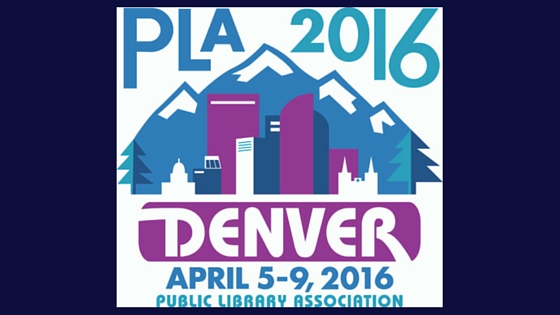Dispatches from PLA 2016: Powerful Summers

As the plane touched down in Denver, Colorado, I was eager to attend my first PLA Conference, where I was not only a participant but also a copresenter of the preconference “Powerful Summers: Library-Community-School Partnerships.’ For the past three months, I met virtually with an incredible team of library leaders: Liz McChesney (director of children’s services at Chicago Public Library), Lisa McClure (Community Engagement manager at Broward County Library), Jennifer Hoffman (manager of Books and Borrowing at Denver Public Library), and my supervisor, Christy Estrovitz (Youth Services manager at San Francisco Public Library). Together, with the fantastic and organized leadership of Emily Samose (director of Education and Learning Initiatives at Urban Libraries Council) in collaboration with Leslie Gabay-Swanston (director of Community Systems Building at National Summer Learning Institute), we crafted an interactive program that explored strategies and partnerships for summer learning.
This preconference was sold out! Upon entering, participants found toys like WixiSticks and BrainFlakes at each round table to encourage creative thinking throughout the afternoon. Even though the preconference took place in a large room, the setting felt intimate and friendly chatter filled the space. Emily Samose and Leslie Gabay-Swanston kicked off the preconference with a welcome and overview of the session goals:
- Understand the challenge of summer learning loss and the unique contributions of libraries in maximizing learning opportunities—especially via partnerships.
- Learn about model library-school-community summer learning partnerships and what makes them work.
- Build a mission for summer learning partnerships that messages the added value of your library in addressing summer learning loss.
They continued to set the tone by sharing the hard facts about summer learning loss and the pivotal role that libraries could play in preventing summer slide. Leslie’s slides about the Faucet Theory were particularly intriguing: learning resources are turned “on” for all youth during the school year because of equal access to education but turned “off” for low-income youth during the summer, resulting in a limited flow of resources. The great news? Our libraries are doing a lot of mitigate this shut-off of resources from schools.
During the two-part panel presentation, participants learned about a slew of unique partnership possibilities, such as:
- San Francisco Public Library shared highlights from a partnership local publisher, Chronicle Books, to commission original art from Newbery award-winning illustrator Christian Robinson to spice up Summer Learning publicity materials and give life to an exciting partnership with the National Park Service in their centennial year;
- Chicago Public Library spotlighted a game-changing partnership with the Museum of Science & Industry, which fostered STEAM program opportunities for a large, urban, diverse population and validated the multiple intelligences in their community;
- Broward County Library offered practical advice for partnership planning and staff engagement from multiple angles;
- Denver Public Library discussed collaborations between the library and local government to develop an all-in-one card that gives patrons access to services throughout their community.
In two activities sprinkled throughout the preconference, participants got to talking with each other. The Partnership Bridge game was a fun way for librarians to reflect upon their current partnership practices. Each person could advance from spring to fall and build a “bridge” if they did things such as partnering with a local school district, school teams, parks department and sharing data with partners. Conversely, they would take steps back if they didn’t distribute publicity materials about their summer learning program to their partners or if they didn’t share data with partners. Many participants made a complete bridge while others took note of steps they would have to take upon return to their libraries. The second activity was Building a Mission Statement for Summer Learning Partnerships, which aimed to help libraries through questions, such as: What do we do? Whom do we do it for? Who are our partners? How do we intentionally work with partners to maximize “what we do”? What will be achieved as a result of your summer learning partnership? Chicago Public Library and Denver Public Library shared their summer learning partnership mission statements as examples.
As we wrapped up the session with Q&A, I felt accomplished. Participants approached us and thanked us for the information; I hope, like me, they left with information that will help them develop stronger summer learning partnerships.
Tags: pla2016, Summer Learning Libraries, Summer Learning Loss









